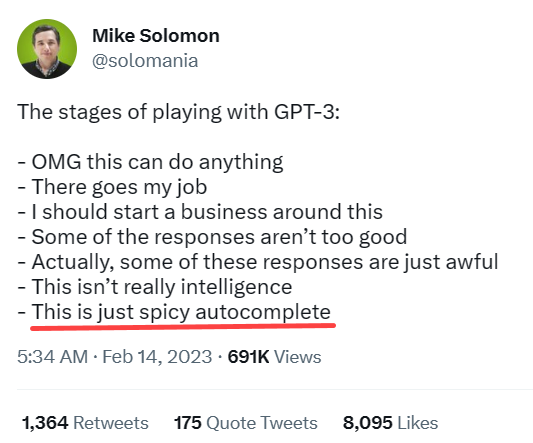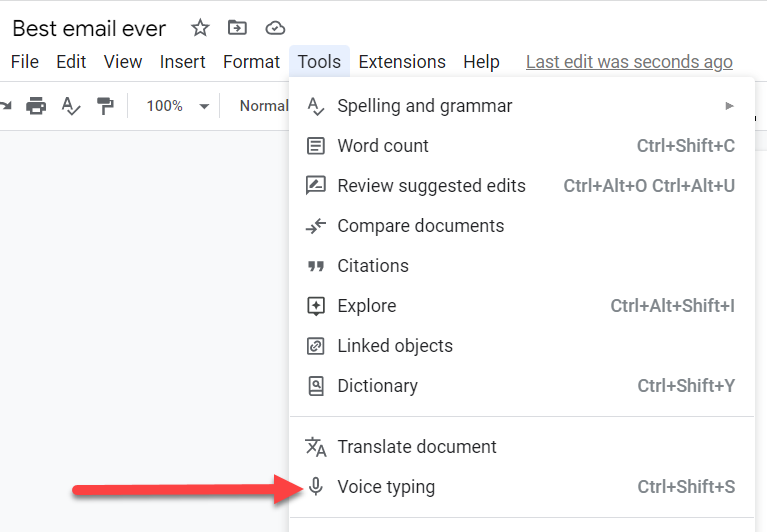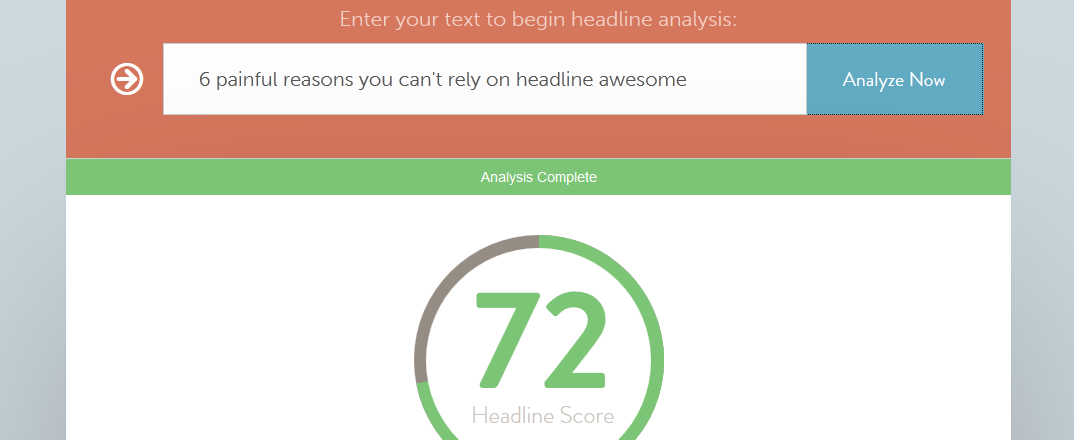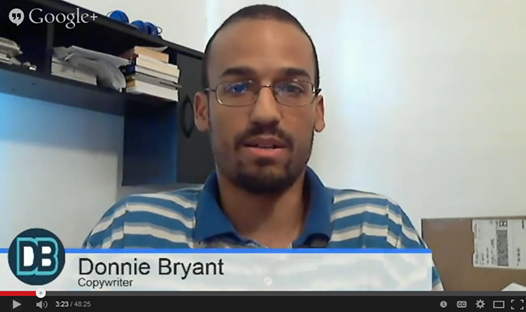The biggest benefit I hear people talking about regarding artificial intelligence platforms like ChatGPT is speed.
You can get more done in your workday. Or you can just work less if you finish projects faster.
Pretty big benefit. But AI isn’t the only way to achieve it.
Today I want to share some thoughts on how to write faster using your built-in tech: your actual intelligence.
These tips can make a big difference in your life:
1) Shut off the filter.
Quick tangent. Generative AI tools work don’t really understand your topic. They’re highly trained at predicting what word you’re about to say next, based on all the sentences it’s seen before.
So if you’ve ever played that game where you make a post on social media using only autocomplete and suggestions… it’s basically an updated version of that.
Seriously. Same technology.
Here’s the key: it predicts words without judgement (or even knowledge)… without worrying if a reader will disagree or think it’s silly… none of the emotions that get in the way.
Which are some of the biggest obstacles to speed in our writing. It’s also what inbues our output with magical potential.
AI also doesn’t tend to use vocabulary flourishes like using “imbue” in a sentence. (It’s never the most-probable next word for the autocomplete.)
Anyway… when you turn down the volume on your emotional filter, you automatically write faster.
So that’s something you can work on. Criticize yourself less. Trust yourself to create something great. And don’t worry about getting it perfect in the first draft.
Pretend you’re a bot for 20 minutes. Let the words flow and see what happens.
2) Delete the Speed Limit.
One of the things that may be slowing you down is the belief that it’s going to take a long time, or the belief that you’re a slow writer.
If you believe that, you will experience that.
I’ve been saying “I’m not a fast writer” for YEARS. But when I stopped saying that about myself, I was shocked by how much more productive I became.
I have to give credit to Kevin Bullard for helping me get unstuck on this point.
(There’s a lot more to the advice Kevin gave me, but we won’t get into that here.)
3) Remember Law #4.
In Robert Greene’s classic book The 48 Laws of Power, the 4th axiom is
“Always say less than necessary.“
Greene wasn’t talking to writers, but there’s a kernel of truth hidden in this law specifically for us writers.
Deciding what to exclude is one of the most important parts of a writer’s job.
The point I want to make here is this: decide in advance that you don’t have to cover every aspect of the topic you’re writing about.
(Make the decision in advance to avoid questioning yourself mid-writing.)
Depending on the project, you can often make a snap judgement: “There are probably 20 aspects to this topic, but I’m just going to highlight X of them in this piece.” X= the number of angles you instantly know you can cover with confidence.
You can always change the number as you write.
You come to a point where you know you want/need to add more details. Or you feel like you’re going down a meerkat hole that you can skip entirely.
You’re the creative. Make the choice that makes the most sense.
Speed isn’t everything (which is why human copywriters can’t be totally replaced by AI in most instances). But it’s definitely a bonus if you can get it.
4) Talk It Out
I usually give this advice to people who tell me they don’t like to write or don’t think they’re good writers. But it can work well for anyone.
It can be a good way to shut off the filter that automatically switches on when we sit down to write.
If you’ve ever known exactly what you wanted to say… then spent hours figuring out how to get the words onto your computer screen, you’ve felt the filter at work.
Do yourself a favor. Talk it out. Google Docs or Microsoft Word have built in voice typing functionality.
Here’s a weird trick if you’re still stuck.
Call up a friend and explain your idea to him. That can trick your mind into thinking you’re having a regular ol’ conversation. The filter will relax.
Edit the text and you’re good to go.
5) Never Start from Scratch
Templates, writing prompts and swipe-worthy examples are speed-boosting tools just like AI.
Good ones can put rocket fuel in your tank.
Whether you’re just getting started as a copywriter or you’ve been cruising along for years — or if you’re an entrepreneur who wants to write better copy faster…
This could change everything for you.
You’ll write faster and more confidently… and more persuasively.
That means more money in your account in less time. And that’s the name of the game.
Have a productive day!









